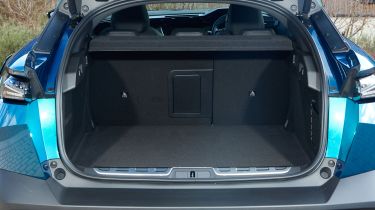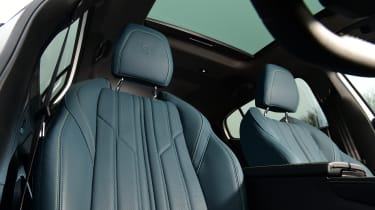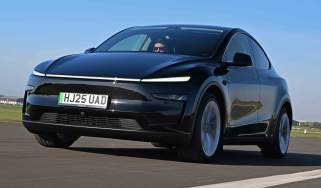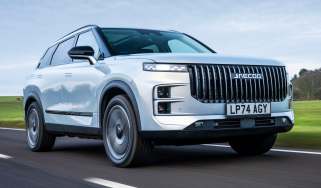Peugeot 408 review - Practicality, comfort and boot space
The 408 is more practical than it looks with a large boot and generous space for families.

The Peugeot 408 certainly has a sleeker shape than the average SUV but when you get inside, it gives surprisingly little away in terms of practicality to more traditionally-proportioned rivals. Storage space inside is plentiful with carpeted door bins and a large glovebox ready to swallow your odds and ends.
There’s no rear windscreen wiper on the Peugeot 408 and although Peugeot has designed some clever aerodynamic bumps above the window that are supposed to help keep it clean, it did pick-up a fair bit of dirt on our winter test drives. Regular washing may be required.
Size
The 408 is 4,687mm long, 2,062mm wide and 1,478mm tall. It’s a significantly bigger car than Peugeot’s 3008 mid-size SUV, which is only 4,447mm long, and it also measures up both longer and wider than rivals like the Cupra Formentor. The sleeker roofline does mean it is lower than the medium SUV class average, however.
Leg room, head room & passenger space
As you’d guess from the exterior dimensions, the space inside the Peugeot 408 is good, with the exception of headroom which you get less of than in more conventional SUVs. Access to the rear seats is easy enough through wide opening doors, though you do have to duck your head down a little. Once inside, it’s a little gloomy with the dark interior trim and tinted windows.
Boot
The 536-litre boot is very impressive for the class. It’s 86 litres larger than the Cupra Formentor’s, and the low (665mm) load lip makes chucking heavier items in easier. By our own measurements, the space itself is 997mm long and 1,045mm wide so there’s a big square floor area, even if the car’s rakish rear window line does limit the height you can stack objects to.
There’s a small cargo hatch in the rear seat backs that you can poke larger items through. Alternatively, those seats split 60:40 and can be folded via levers in the boot area itself to reveal a 1,611-litre capacity. The seats don’t go completely flat so there’s a slope at the rear of the load area to contend with.
Towing
The Peugeot 408 has a 1,392kg kerb weight in 1.2-litre petrol form and can tow a 1,200kg braked trailer. The plug-in hybrids are both around 1,700kg in terms of kerb weight and can tow 1,400kg. You’ll find other mid-size SUVs with bigger towing capacities, including the Cupra Formentor, which can haul up to 1,800kg.
More reviews
Which Is Best
Most Economical
- Name1.6 Plug-in Hybrid 225 Allure 5dr e-DSC7
- Gearbox typeSemi-auto
- RRP£41,500












